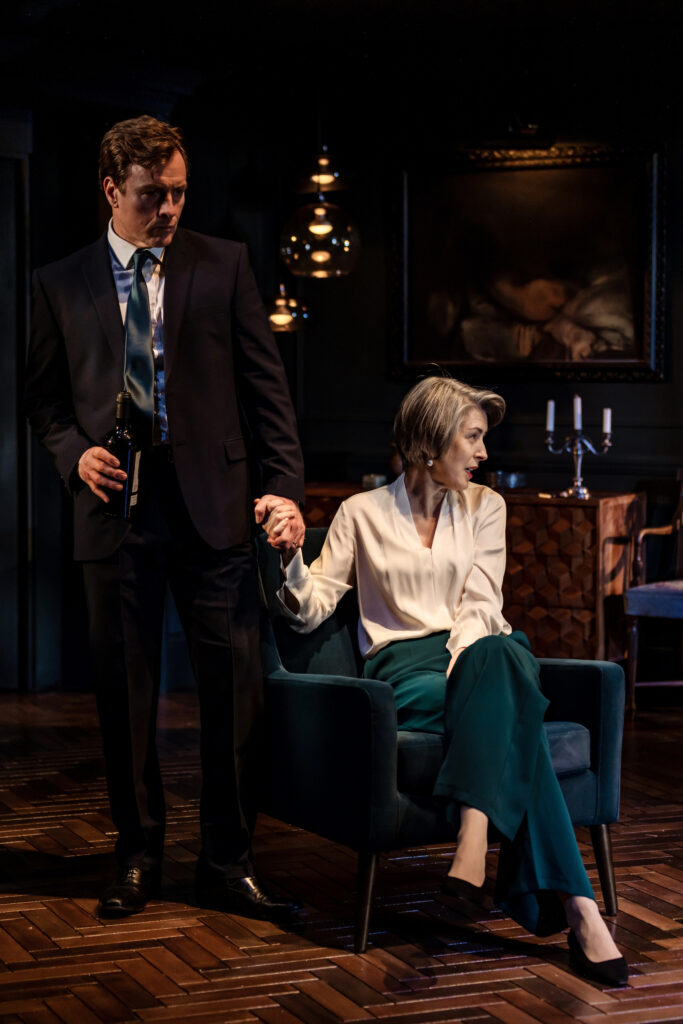Hampstead Theatre, London – until 12th March 2022
Reviewed by Celia Armand Smith
3***
The Forest is like a piece of paper that has been repeatedly folded and unfolded. No matter how hard you try, you can never fold it exactly the same, and the lines start to distort, changing the integrity of the paper itself.
Written by acclaimed French author Florian Zeller, translated by his collaborator Christopher Hampton, and directed by Jonathan Kent, The Forest is a tense exploration of infidelity, morals, and consequences of one’s actions. From early on in the play, you begin to realise that you may not quite have a handle on what is fantasy and what is reality after all. There is no guessing where the story will go.
The plot centres on a successful surgeon who begins to split in two as a result of guilt, infidelity, and murder. Man 1 is performed by Toby Stephens, Man 2 by Paul McGann; two fragmented sides to one character. As the story unfolds, folds, and unfolds once again, there are small changes in the characters and storyline. The play opens on Man 1 (Stephens) and his quietly supportive wife (Gina Mckee) comforting their daughter who has been cheated on by a boyfriend. The scene then flips to a room above where Man 2 (McGann) is in bed with the girlfriend (Angel Coulby). She wants what he will not give and give up. It is here where we see the beginnings of a spiral which will eventually lead to tragedy. The rest of the cast including Finbar Lynch as a surreal and sinister nightmarish figure (possibly the man’s conscience), provide a strong throughline when things begin to go awry. Gina McKee as the doting and supportive yet knowing wife brings an eerie stillness and quiet that is gradually amplified until the end when a crushing silence raises the hairs on your arms.
The atmospheric soundscape created by Isobel Waller-Bridge of a familiar monotone rumble of bad things to come, coupled with dramatic lighting designed by Hugh Vanstone creates a foreboding and sometimes startling backdrop for the action. Every element of this slick production was beautifully conceived and executed. The intimate and clever staging, created by Anna Fleischle consists of three rooms; the floral bedsit of the mistress, the living room the man shares with his wife, and a generic office that seems to be a space for therapy, some dodgy dealings, and friendly chats about infidelity and what an absolute nightmare it is. With every change of the retelling of the story, bouquets of flowers gradually take over the stage, reflecting the complete psychological breakdown of the main character. The final scenes see the flowers grotesquely spilling out of cupboards.
You don’t come away from this play with a cosy feeling that the story has been wrapped up in a little parcel. There is no ending, rather an unsettling pause that stays with you for hours after.

